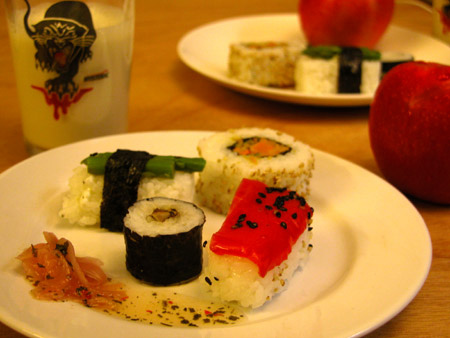A tennis players diet is different from a regular diet, in that the nutrition requirements are more specific and regulated. For players engaging in tennis training, a highly specialized tennis diet should be carefully planned and monitored.
In today’s modern tennis, players recognize the need of on court training as well as off court preparation. All of the intangibles must be in place before a tennis player can truly blossom and reach the next level. Too many players lack the off court tennis nutrition preparation needed to really succeed in a competitive tennis playing environment.
Eating a healthy and balanced tennis diet should never be taken for granted. In order to achieve peak performance in tennis, players must have adequate energy in their bodies for this level of performance.
Requirements of a Tennis Players Diet
Tennis is a sport that requires endurance, agility, speed and power. Thus every tennis player requires high energy storage to accomplish all these requirements. They also need protein to build up muscles and essential vitamins and minerals. For every tennis player to win tennis matches and tournaments, they must maintain proper diet not only during tournaments (diet before, during and after matches) but during tennis trainings as well. This is because an optimal tennis diet is built over time.
A tennis diet must be focused on high carbohydrate energy foods and adequate hydration. Tennis diet should also be timed appropriately especially during tournaments.
What is a balanced and healthy tennis players diet?
A balanced tennis diet is a diet that contains all the necessary components responsible for a healthy body. These components are: carbohydrates, proteins, healthy fats, minerals and vitamins, and water or fluids. It is also ideal to eat fresh food rather than the readymade and processed food. Below are some guides on how to follow a balanced and healthy tennis players diet.
Main components of a healthy and balanced tennis players diet:
Carbohydrates in a Tennis Diet
Tennis players need to consume high amount of carbohydrates considering the amount of energy they loss during tennis trainings, practice and matches. Carbohydrates fuel muscles and avoid early muscle fatigue, thus increasing the player’s endurance. Tennis players normally lose 500 to 1500 of calories after every match. For a professional tennis player who has to play several matches in a tournament has to replenish carbohydrates loses by eating high carbohydrate foods. Any carbohydrate containing foods provide nutrients, fiber and above all energy.
A professional research showed that a healthy tennis players diet include 7-10 grams of carbohydrates per kilogram weight of the player’s body. It is also recommended to consume only the complex carbohydrates sources and avoid the simple sources of carbohydrates. Examples of high carbohydrate food that contain complex carbohydrates are pasta, rice, bread, oatmeal, potato, and other cereals.
Foods that contain simple carbohydrates such as chocolates bars, sugary drinks and so on should only be used for emergencies. Like for example, tennis players may consume snack chocolate bars during matches.


Protein in a Tennis Diet
A tennis players diet must also include protein. Protein is essential for the tennis players’ muscles build up. Protein is broken down into amino acids which are very important in muscle build up, hemoglobin formation and many others. Proteins also help players to recover quickly from long hours of matches and injuries.
For a healthy diet and to reach the protein requirement for tennis players, one should consume two to three servings of protein sources foods. Oatmeal is a very good example of a cereal meal that provides good protein aside from the 7 B vitamins (Vitamin B1, Vitamin B2, Vitamin B3, Vitamin B6, Vitamin B5, Vitamin B7, Vitamin B9). Other examples of high protein source food are beans, eggs, meat (poultry, beef, port, etc.) fish, cheese, milk, yogurt and many others.
Fruits and Vegetables for vitamins and minerals in a Tennis Diet
Other important tennis players diet components include fruits and vegetables. They are the natural source of vitamins, minerals, antioxidants and other nutrients. For a healthy tennis players diet, a player has to have three to five servings of vegetables in addition to four servings of fruits.1/2 cup of cooked vegetable of any type (e.g. spinach, tomatoes, and other vegetables) and fresh salads is equal to one serving. And one serving of fruits is ½ cup of any type of fruits such as the berries, apple, mango and many others.
Fluids in a Tennis Diet
Tennis players need to drink water or fluids regularly even without any physical activities because hydration is vital for normal body processes. Reports show that ideally, tennis players should consume 80 ounces of water or any type of fluid daily. It is also very important to drink the water or fluid regularly and not just drink it when you become very thirsty.
Professional tennis players in particular, need to drink lots of water or fluids all throughout the day and the night before big events or matches so that their body is always hydrated and functioning perfectly. In addition to water, tennis players should also drink sports drinks that contain electrolytes, carbohydrates, sodium, and proteins. These types of sports drinks serve as immediate replenishment of all the essential body elements that are lost during matches or any intensive physical activities.
Tips for hydrating before training or a match:
- To maintain a proper tennis player diet, you have to limit (or if possible) avoid drinking beverages that contain high level of caffeine such as coffee, tea, and caffeinated cola drinks. Caffeine enhances urination causing fast fluid loss. It can also be a nuisance if your need to urinate comes in the middle of a match. This is not just a nuisance but can also affect your focus and concentration and your performance as a whole.
- Hydrate yourself 2 hours before the match by drinking 17-20 oz of drinks.
- As much as possible, drink regularly even during the match. Do not wait until you feel thirsty to grab your drinks. You have to drink about 4-8 oz of liquid when there is time or during the changeover. One very good indication if your fluid intake is enough is the color of you urine. Light or pale yellow color urine indicates that the fluid intake is enough.
Fats in a Tennis Diet
Fats may sound unhealthy but a tennis players diet should also include this component. This component of tennis players diet is responsible for the slowing down of the carbohydrates absorption of the body. This means that the fat component help in prolonging the energy supply of the body.
This nutrient is vital in a tennis diet especially in sports like tennis where matches can last for hours. Examples of good source of fats are nuts (for players with no allergies to nuts of course) such as walnuts and almonds, natural peanut butter, high fat milk, olive oil, fatty fish (e.g. mackerel), and whole eggs. However, it should be noted though that appropriate amount of fat should be consumed. Too much or too little fat intake has its own disadvantages. Appropriate fat consumption is at least 15% of the dietary calories requirements.
Very low (lower than the requirements) disallow the player’s body to absorb enough fat soluble vitamins such as Vitamin E which plays a vital role as antioxidants. Low fat diet restriction also put the players in limited food choices. The more varied food choices a tennis player has the better. In addition, since fat is responsible for the prolonged supply of body energy, very low fat intake can also decrease the player’s endurance and performance.
On the contrary, too much fat consumption can also lead to some health related issues. The most common issue related to extremely high fat consumption is the cardiovascular disorder. Furthermore, too much fat consumption can also result to slow and sluggish performance.
Tennis Player’s Diet and Meal Plan


Breakfast is always the most important meal of the day not only for tennis players but for everybody. Breakfast is the key for any well versed tennis player’s diet. This meal is vital to replenish all the nutrients, minerals, glycogen, fluids during the whole night fasting. Tennis players normally have very low level energy in the morning before breakfast, thus it is important to include high carbohydrates in tennis players diet for breakfast. This means that the depleting glycogen in the player’s muscles is refueled and the player is able to start his day right.
The meal after breakfast can be consumed at smaller quantities but at more frequent intervals. Tennis players should avoid eating one big meal in a day and consume no more after is. Smaller but more frequent meals provide a constant supply of energy. In addition, eating too much meal may overload the digestive system which may cause several problems. One of which is the sluggish performance of the player. Lastly, bigger meals at a time can also results to the accumulation of fats due to improper digestion.
Learn to Hit a Forehand Like Roger Federer
If you want to jumpstart your forehand and play like the PROS, check out my 70+ page Tennis Ebook that will immediately show you how you can take your forehand to the next level.
The Modern Forehand Domination Ebook is guaranteed to improve your tennis technique, and increase power, topspin and accuracy of your tennis forehand!
Modern Tennis Forehand Ebook
Learn How to Hit a Forehand Like Federer, Nadal and Djokovic

